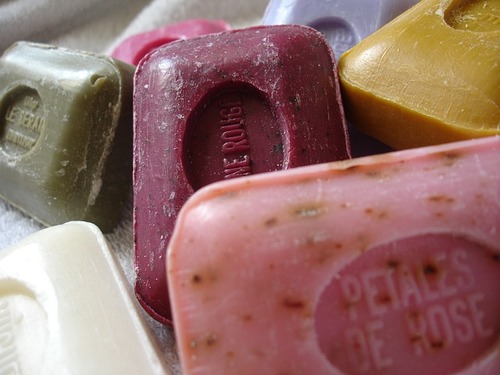Short answer
Soap is not bad for you - it helps kill germs and stop the spread of illness. Just make sure to avoid any soaps containing fragrance, parabens, sulfates and triclosan, as these chemicals can cause serious skin irritation and even hormone disruption.
Long answer
We use soap every single day, multiple times a day. It’s supposed to be a healthy habit that helps fight the spread of germs and bacteria to prevent sickness. And for the most part, it does. However, not all soap is created equal. Some varieties contain harmful ingredients that can do serious long-term damage.
To protect yourself, you don’t have to stop lathering up at the sink and in the shower. Just read soap labels and avoid anything that contains fragrance, parabens, sulfates and triclosan.
First, let’s talk about what “fragrance” actually refers to. On the label, “fragrance” is usually listed as one ingredient. But in actuality, it could refer to hundreds or even thousands of different chemicals. Some of these additives are fairly innocuous... but others may result in skin irritation or allergic reactions while others are potentially toxic. And to protect industry trade secrets, manufacturers do not have to legally disclose which ones they used.
Secondly, steer clear of parabens. These chemical preservatives are approved by the U.S. Food and Drug Administration (FDA) for use in toiletries (including soap) to prolong the product’s shelf life. But some studies suggest that parabens can disrupt the body’s hormones. Parabens have also been found in the tumors of breast cancer patients. Scientists still aren’t quite sure what the connection is—but it’s worth noting that a link exists.
Next, look out for sulfates. These are the chemicals used to make soap sudsy. Most of us associate the suds with cleanliness—nothing feels fresher than working up a good lather! However, in the process, sulfates dry out the skin by stripping it of its natural oils. They are a known irritant, particularly for those with sensitive skin or eczema.
Lastly, you should avoid any soap with triclosan. Once commonly found in antibacterial soap, studies now show that washing with triclosan isn’t any more effective than ordinary soap and water. In fact, the opposite is true: triclosan actually promotes bacterial resistance to antibiotic cleansers. If that’s not bad enough, it also acts as an endocrine disruptor. Numerous studies have found that triclosan may disrupt the body's thyroid hormone regulation. It’s important to note that this is all based on animal studies—but the FDA refers to the findings as “a concern.” Because if the same holds true for humans, researchers fear that long-term triclosan exposure may lead to the early onset of puberty, obesity, infertility and even cancer.
So what soap is safe? Generally speaking, the fewer ingredients a soap contains... the better it is for you. Opt for all-natural bar soaps or liquid Castile, and avoid anything scented or antibacterial.
Possible short-term side effects
- skin irritation
- allergic reaction
Possible long-term side effects
- bacterial resistance
- endocrine disruption
- infertility
- cancer
Ingredients to be aware of

Benefits
- washes away dirt
- kills germs/bacteria
- helps prevent illness
Healthier alternatives
- natural soap
 Approved by
Approved by 


.png)












